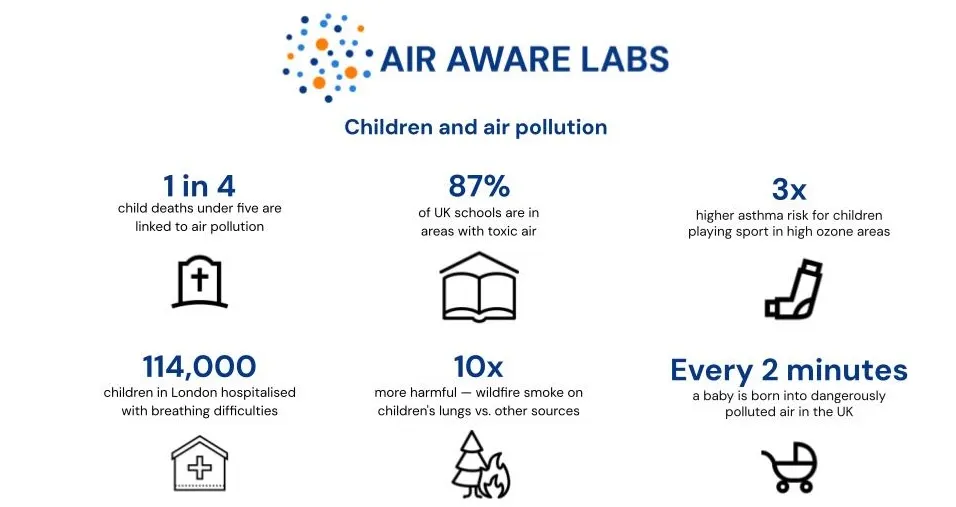Air Pollution and Dementia

Dementia is a debilitating condition affecting millions worldwide, characterised by the progressive decline in brain functioning that impacts memory, thinking, and other mental abilities. A recent study found that 45% of dementia cases could be preventable by addressing various risk factors including air pollution. Several studies have established a link between long-term exposure to air pollution with cognitive decline, as well as the emergence of new cases of dementia. Previously, it was estimated that 6.1% of all diagnosed dementia cases could be attributed to exposure to elevated air pollution concentrations.
Air pollution contributes to dementia by causing chronic inflammation and oxidative stress in the brain, leading to neuronal damage. Pollutants can weaken the blood-brain barrier, allowing harmful substances to infiltrate the brain, and increase the risk of cardiovascular diseases, which are closely linked to dementia.
Fine particulate matter (PM2.5) plays a significant role, contributing to approximately 188,000 dementia cases each year. Higher levels of PM2.5 are associated with higher levels of dementia diagnosis, and long-term exposure has been linked to both the first first hospitalisations and the progression of dementia. Metals such as magnetite can enter our brains via the olfactory system, and when combined with gases such as nitrogen dioxide (NO2), the risk is further intensified. Long term exposure is associated with increased reliance on community mental health teams (CMHTs), particularly for those with vascular dementia. Moreover, exposure to NO2 and PM2.5 has been connected to older adults losing their independence and needing assistance with daily activities. In a Danish Nurse Cohort study, noise and poor air quality were linked to the onset of dementia among women in urban areas, with a median age of 79.1 years.
For NO2 exposure alone, individuals living in the highest quintile face a 40% higher risk of developing dementia compared to those in the lowest quintile. Additionally, the increasing frequency of wildfires worldwide is especially alarming, as exposure to wildfire smoke has been correlated with a 21% increased risk of a dementia diagnosis. Ozone, another common pollutant, has also been linked to dementia as well as general cognitive decline and Alzheimer’s disease.
Fortunately, reducing exposure to air pollutants may lower the incidence of dementia cases. In urban areas, reducing exposure might reduce the need for mental health services among those with dementia. Protecting yourself from outdoor air pollutants can be as simple as taking an alternate route for your exercise, commute, or daily walk. AirTrack lets you monitor your PM2.5 and NO2 exposure based on your location, so you can plan your routes with minimal exposures. Our mission at Air Aware Labs is to bring personalised air pollution exposure data to everyone, so sign up for AirTrack so you can start your journey towards breathing cleaner air.


.svg)



.png)







